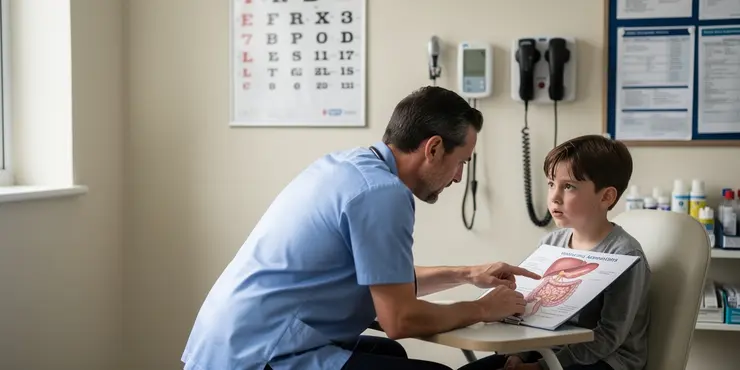
Find Help
More Items From Ergsy search
-
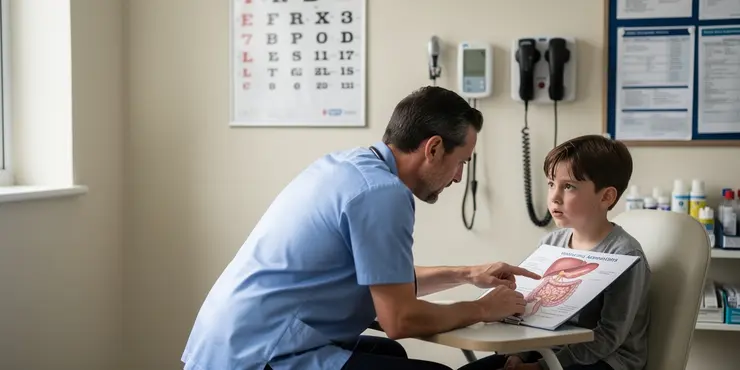
What is the likelihood of needing surgery for suspected appendicitis?
Relevance: 100%
-
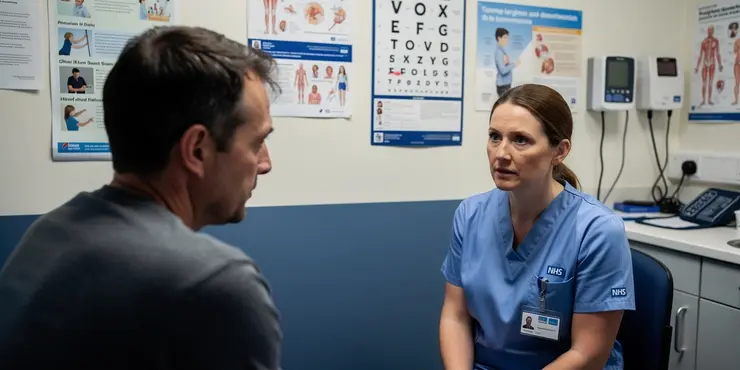
How soon should you see a doctor if you suspect appendicitis?
Relevance: 54%
-
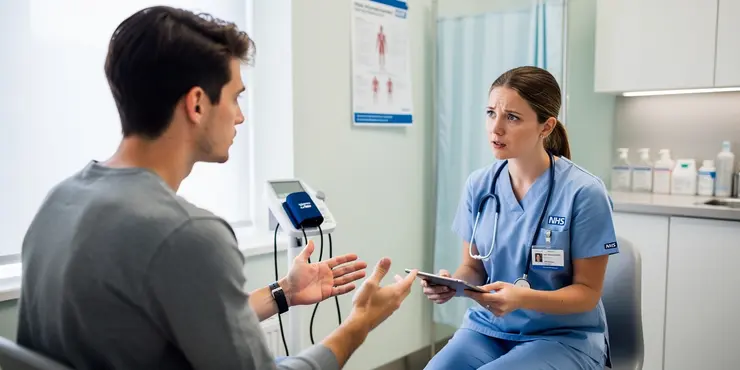
What is Appendicitis?
Relevance: 50%
-
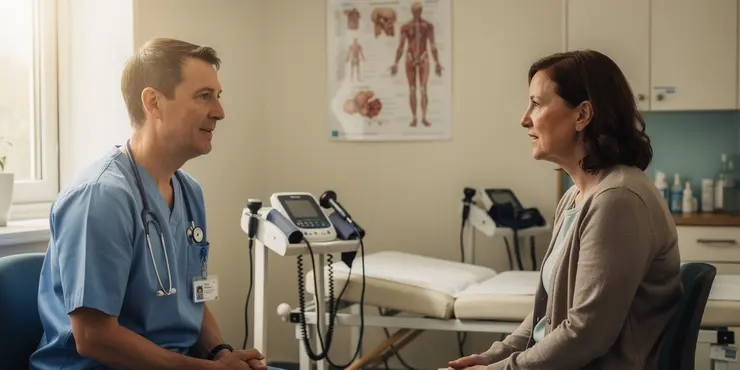
Is appendicitis hereditary?
Relevance: 47%
-
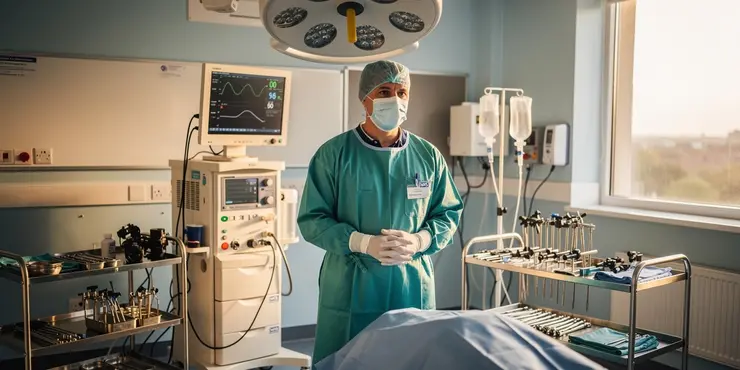
What is the treatment for appendicitis?
Relevance: 46%
-
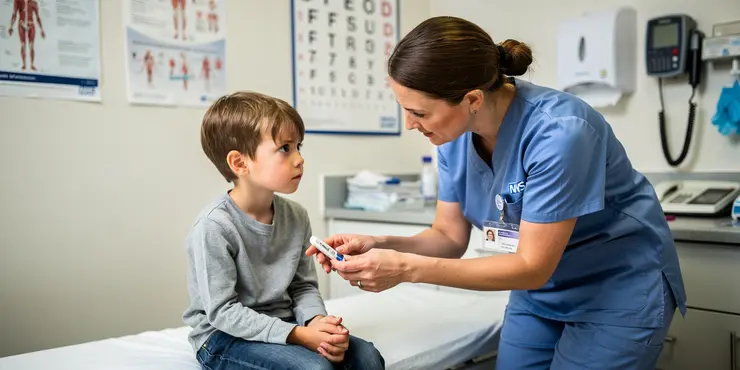
What causes appendicitis?
Relevance: 45%
-

Can appendicitis go away on its own?
Relevance: 43%
-
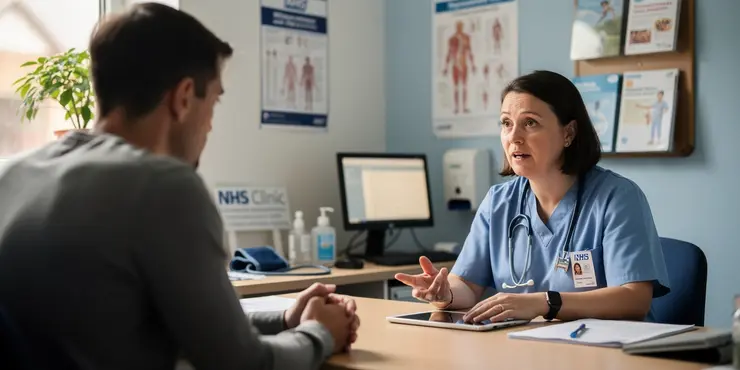
Can appendicitis be treated with antibiotics?
Relevance: 43%
-
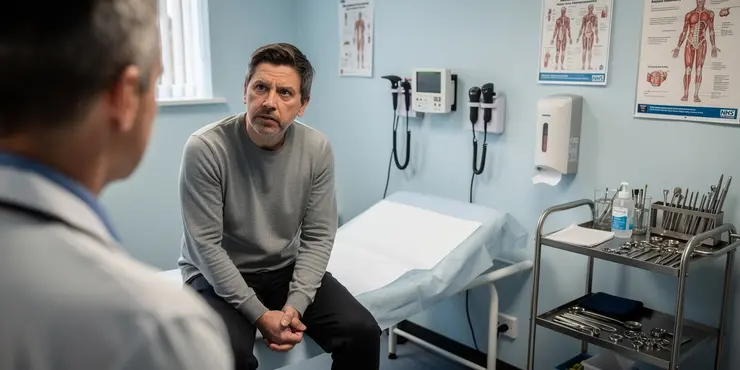
What happens if appendicitis is left untreated?
Relevance: 42%
-
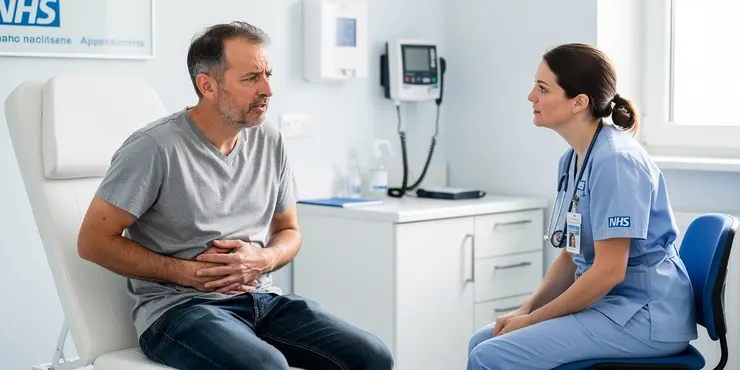
What are the potential complications of appendicitis?
Relevance: 40%
-
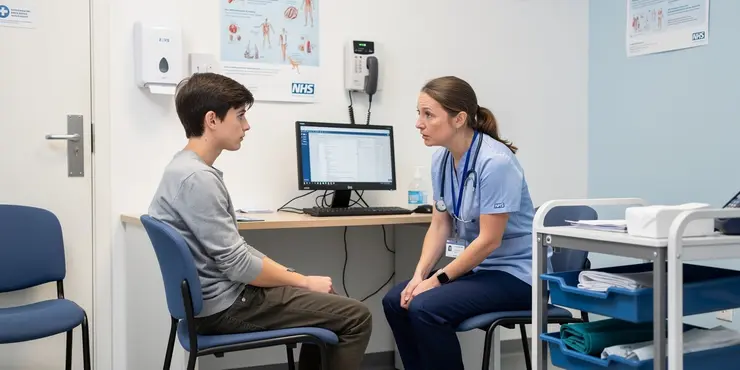
Is appendicitis common in any particular age group?
Relevance: 38%
-
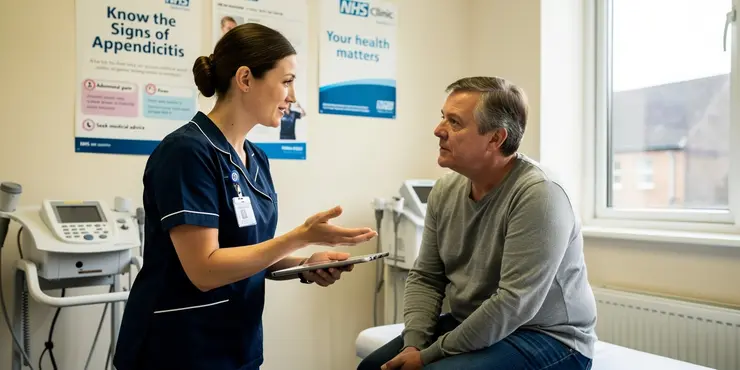
What are the common symptoms of appendicitis?
Relevance: 37%
-
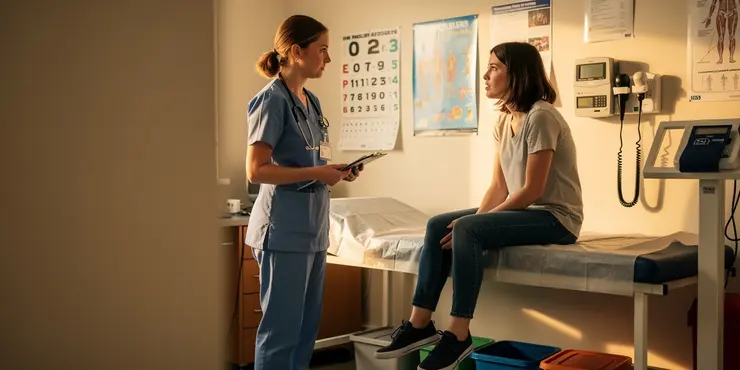
How is appendicitis diagnosed?
Relevance: 37%
-
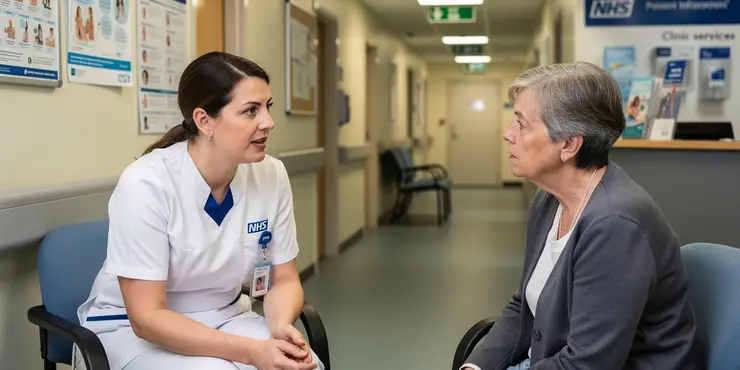
Can appendicitis occur more than once?
Relevance: 37%
-
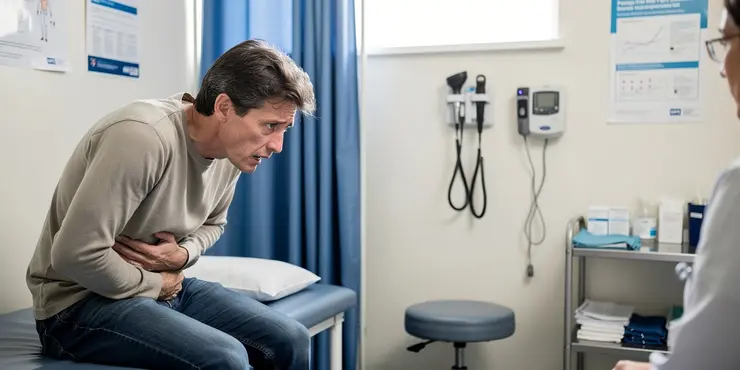
Where is the pain located when you have appendicitis?
Relevance: 34%
-
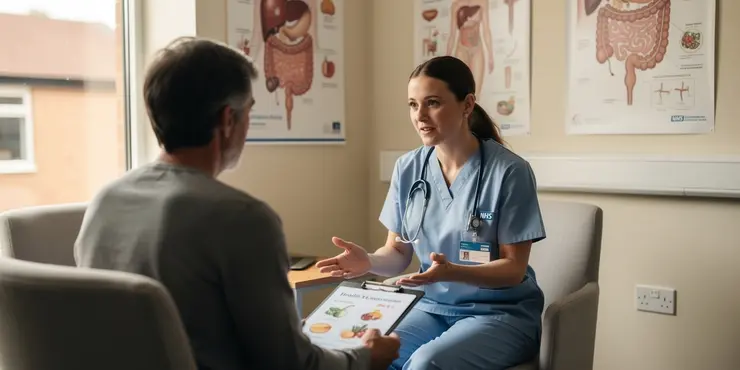
Can diet or lifestyle changes prevent appendicitis?
Relevance: 33%
-
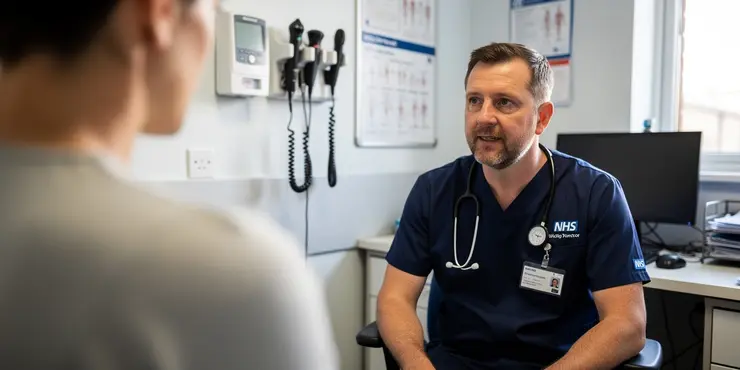
How is appendicitis different from other causes of abdominal pain?
Relevance: 33%
-
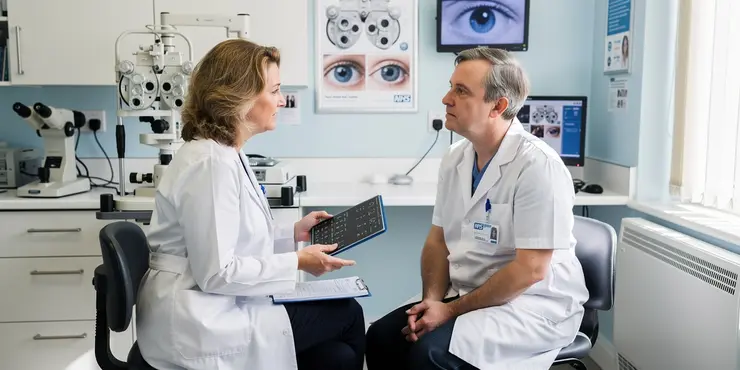
What should I do if I suspect I have hypotony?
Relevance: 26%
-
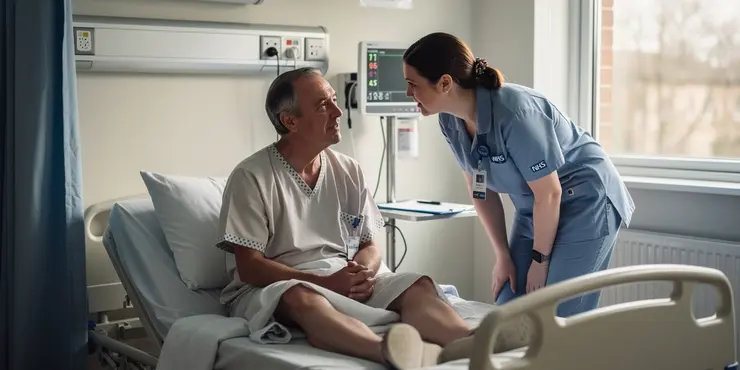
Prostate Surgery
Relevance: 25%
-
How do I know if my surgery is considered elective or urgent?
Relevance: 24%
-
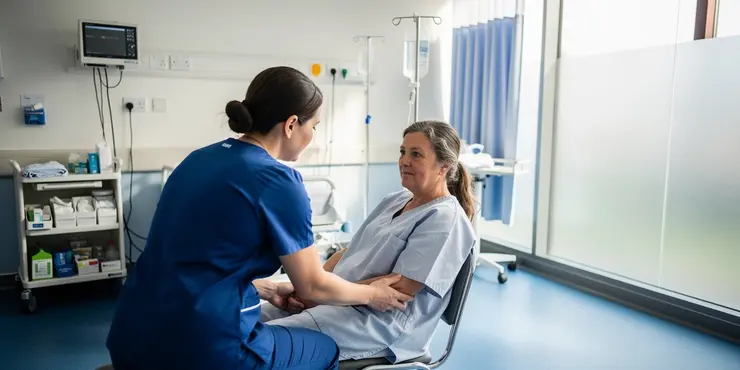
Lumbar surgery | NHS
Relevance: 23%
-
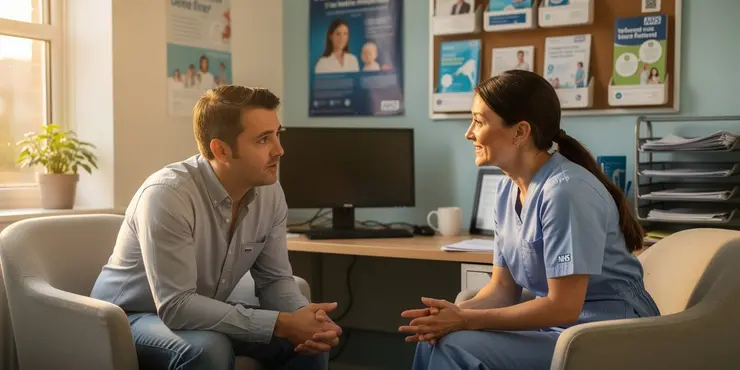
Weight Loss Surgery
Relevance: 23%
-
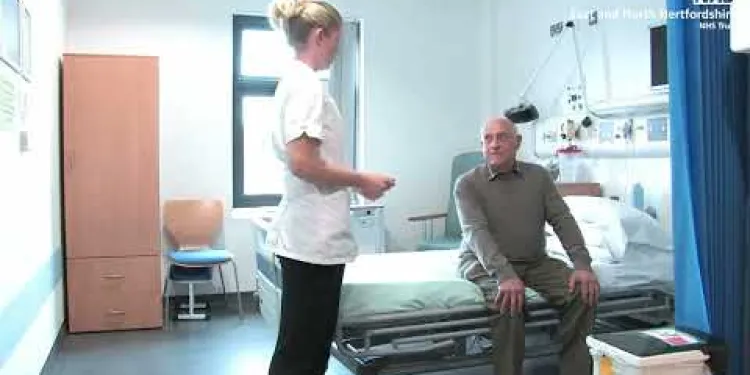
A journey to hip surgery
Relevance: 23%
-
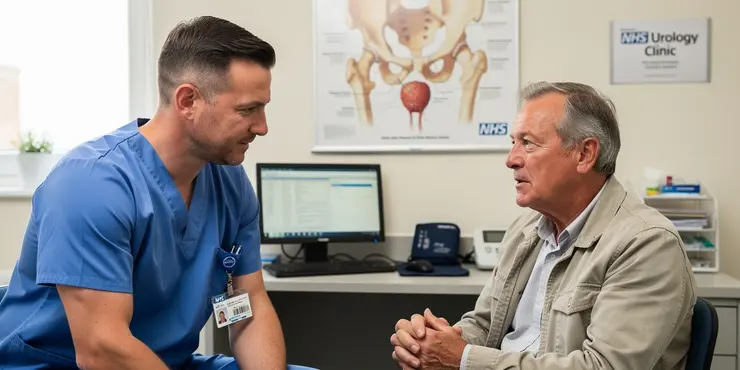
How does surgery treat prostate cancer?
Relevance: 23%
-
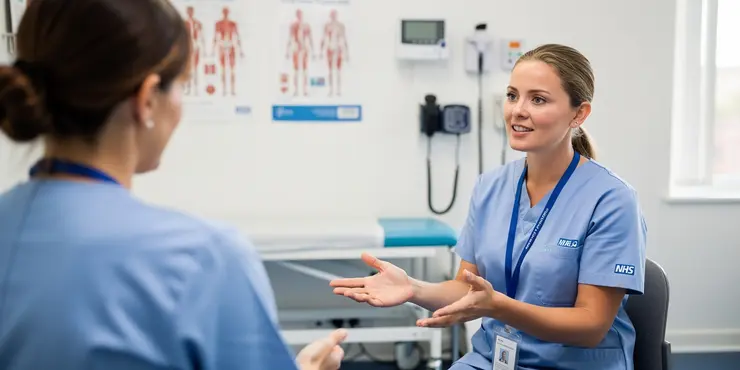
What are the side effects of prostate cancer surgery?
Relevance: 22%
-
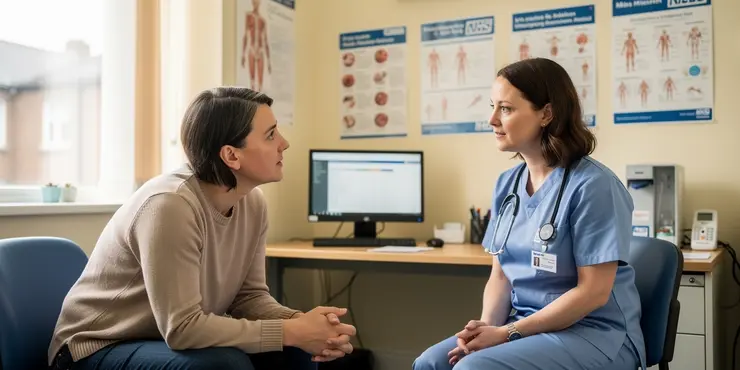
What should I do if I suspect I have measles?
Relevance: 22%
-
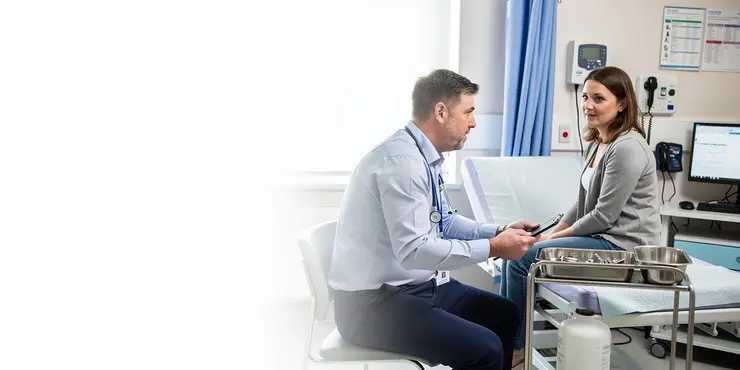
Is surgery necessary for Crohn's disease?
Relevance: 22%
-

Can you live without an appendix?
Relevance: 22%
-
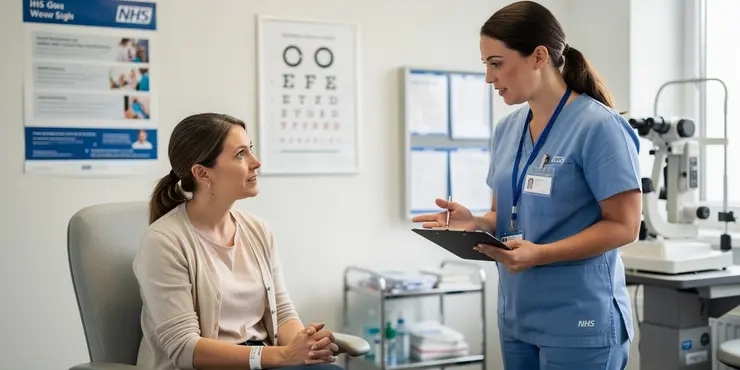
On the day of your cataract surgery
Relevance: 22%
-
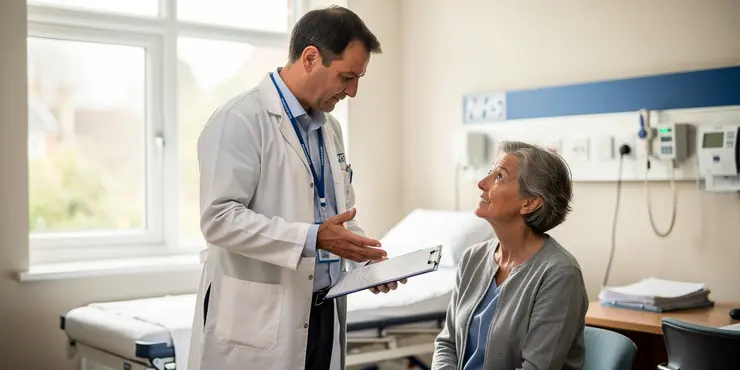
Evidence-Based Interventions: haemorrhoid surgery
Relevance: 22%
-
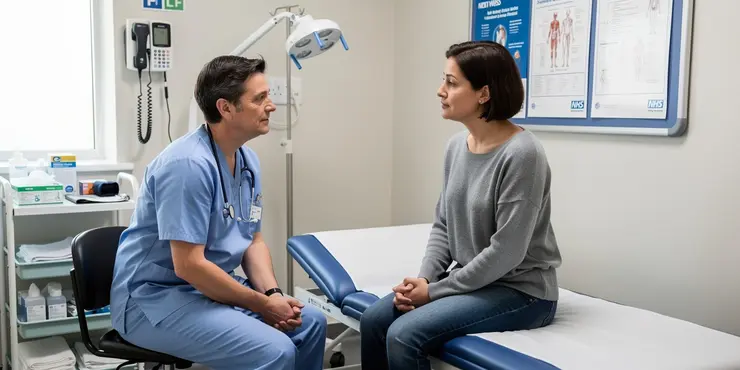
What should I do if I suspect I have sleep apnea?
Relevance: 22%
-
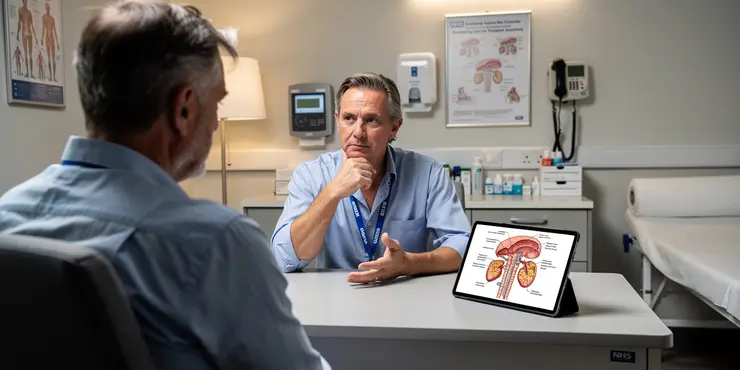
When is surgery recommended for BPH?
Relevance: 21%
-
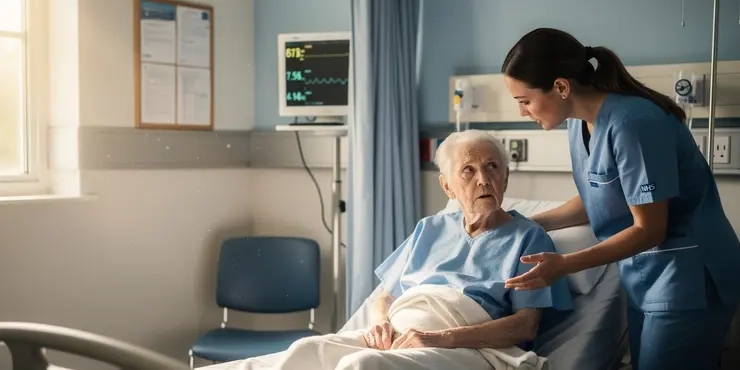
Experiencing delirium after surgery
Relevance: 21%
-
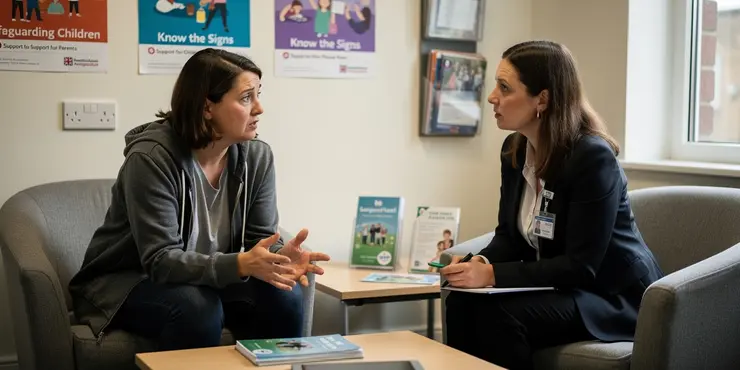
What professional resources are available if grooming is suspected?
Relevance: 21%
-

What should I do if I suspect a scam?
Relevance: 20%
-
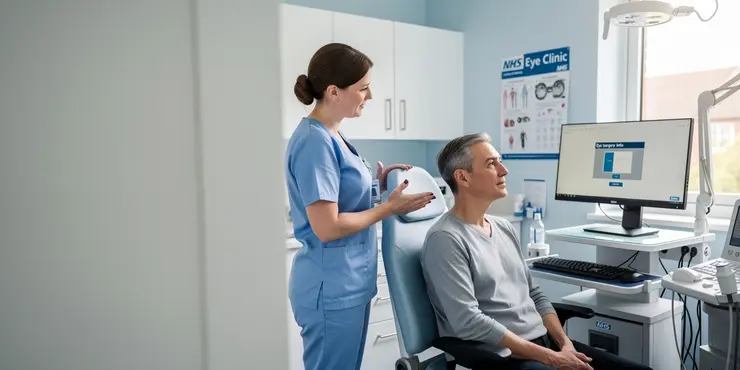
Thyroid eye disease. Squint surgery - The operation
Relevance: 20%
-
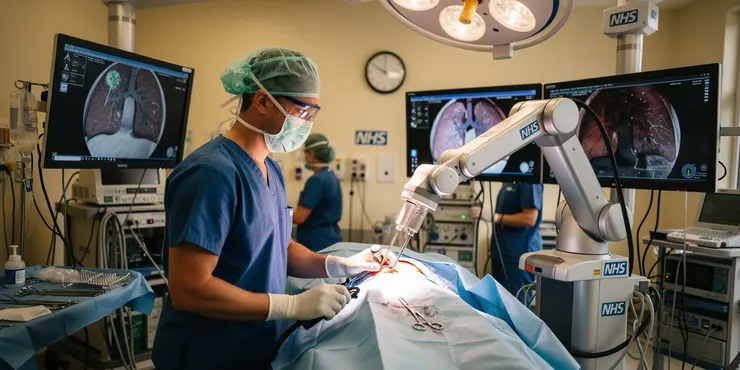
How do AI-assisted robotic systems enhance lung cancer surgeries?
Relevance: 20%
-
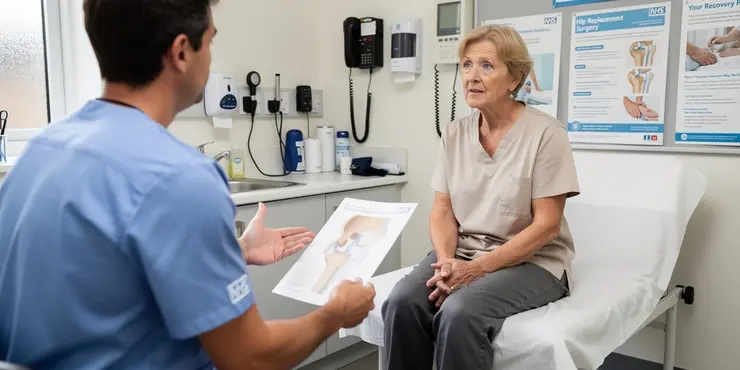
What is minimally invasive hip replacement surgery?
Relevance: 20%
-
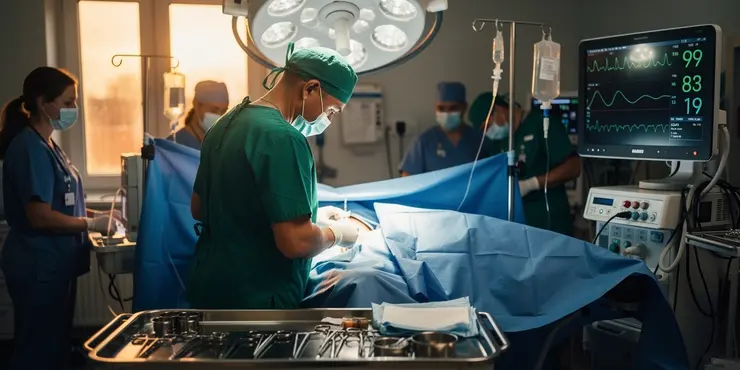
Is surgery always required to treat flesh-eating disease?
Relevance: 20%
-
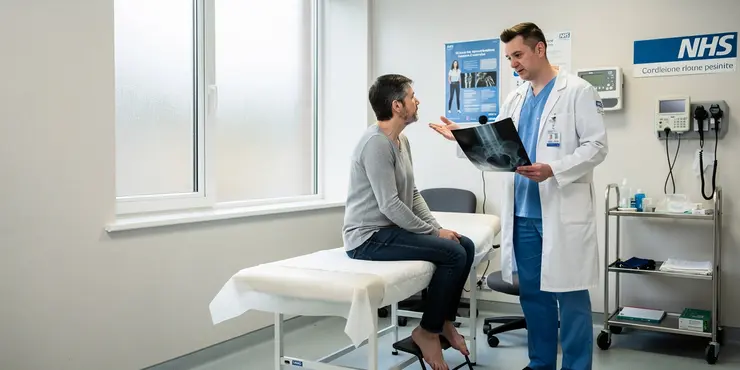
What are the risks associated with hip replacement surgery?
Relevance: 20%
Understanding Suspected Appendicitis
Appendicitis is a common condition that occurs when the appendix becomes inflamed, often due to infection or blockage. The appendix is a small, tube-like organ attached to the large intestine. If left untreated, an inflamed appendix can burst, leading to potentially serious complications. Thus, timely diagnosis and management are crucial. In the UK, appendicitis is one of the most common reasons for emergency abdominal surgery.
Likelihood of Needing Surgery
When appendicitis is suspected, the likelihood of needing surgery is generally high. The standard treatment for appendicitis is surgical removal of the appendix, known as an appendectomy. This is because the risks associated with a ruptured appendix far outweigh those of the surgery. In the UK, around 50,000 appendectomies are performed each year. If a doctor suspects appendicitis, especially if symptoms are acute, surgery is often recommended to prevent complications.
Factors Influencing the Decision
Several factors influence the decision to proceed with surgery for suspected appendicitis. Symptoms of appendicitis can vary but typically include abdominal pain, often starting near the navel and moving to the lower right abdomen, nausea, vomiting, and fever. Diagnostic tools such as blood tests, ultrasound, and CT scans are used to assess inflammation and rule out other conditions. However, no single test can definitively confirm appendicitis. Medical practitioners often rely on clinical judgement and a computed tomography (CT) scan to decide on surgery.
Alternative Approaches and Considerations
In recent years, there has been interest in non-surgical management of uncomplicated appendicitis using antibiotics. Studies suggest that antibiotics can be effective in some cases, thereby avoiding surgery. However, this approach carries a risk of recurrent appendicitis or an eventual need for surgery. The non-surgical option might be considered if the appendicitis is uncomplicated and the patient's condition is stable.
Post-Surgical Expectations
Appendectomy is generally a safe procedure with a high success rate. It can be performed through open surgery or laparoscopy. Recovery times vary, with most patients returning to normal activities within a few weeks. Complications are rare but can include infection and bleeding. Post-operative care involves monitoring for signs of infection and gradual reintroduction to regular activities.
Conclusion
In summary, the likelihood of needing surgery for suspected appendicitis in the UK is high, given the risks of untreated appendicitis. Surgical intervention is often the preferred choice due to its reliability and effectiveness in preventing complications. Ongoing research into antibiotic treatment offers alternatives in specific scenarios, but surgery remains the mainstay option. If appendicitis is suspected, prompt medical evaluation and appropriate intervention are key to ensuring a positive outcome.
Understanding Suspected Appendicitis
Appendicitis is when your appendix gets sore and swollen. This often happens because of an infection or blockage. The appendix is a small tube that is attached to your large intestine. If not treated, a swollen appendix can burst, which is very serious. This is why doctors need to find out quickly and treat it right away. In the UK, appendicitis is a common reason for emergency tummy surgery.
Likelihood of Needing Surgery
If a doctor thinks you have appendicitis, you might need surgery. Surgery is the usual way to treat appendicitis. The surgery to take out the appendix is called an appendectomy. This is because if the appendix bursts, it is more dangerous than the surgery itself. In the UK, about 50,000 people have this surgery every year. If a doctor thinks you have appendicitis, especially if you have a lot of pain, they will usually suggest surgery to keep you safe.
Factors Influencing the Decision
Several things help doctors decide if you need surgery for appendicitis. Signs that you might have appendicitis include: - Tummy pain that starts near your belly button and moves to the lower right side - Feeling sick or throwing up - Having a fever Doctors use tests, like blood tests, ultrasounds, and CT scans, to look at your appendix and rule out other problems. But no one test can say for sure you have appendicitis. Doctors often use what they learn from examining you and the CT scan to decide about surgery.
Alternative Approaches and Considerations
Recently, doctors have started to look into treating appendicitis without surgery by using antibiotics. Some studies say antibiotics can work instead of surgery for some people. But there's a chance the appendicitis could come back, which may still lead to surgery later. Doctors think about this option when the appendicitis is not very serious, and you are otherwise okay.
Post-Surgical Expectations
Surgery to remove the appendix is usually safe and works well. It can be done by making a small cut or using a camera through small holes (laparoscopy). After surgery, most people get better in a few weeks and return to their normal activities. Rare problems from surgery can be infections or bleeding. After surgery, it's important to watch for signs of infection and slowly go back to normal activities.
Conclusion
In summary, in the UK, if doctors think you have appendicitis, you will likely need surgery because of the risks if it is not treated. Surgery is often the best option because it is reliable and helps prevent serious problems. Research on using antibiotics instead of surgery is ongoing, but surgery is still the main way to treat appendicitis. If you think you have appendicitis, you should see a doctor quickly to get the right treatment.
Frequently Asked Questions
What is the likelihood of needing surgery for suspected appendicitis?
The likelihood depends on the clinical and diagnostic evaluation, but historically, surgery has been a common treatment for confirmed appendicitis.
How often is surgery necessary for suspected appendicitis?
Surgery is required if appendicitis is confirmed, which occurs in about 60-70% of suspected cases after thorough assessment.
Can appendicitis be treated without surgery?
In some cases, mild appendicitis can be treated with antibiotics, but surgical removal of the appendix, known as an appendectomy, is often recommended to prevent recurrence.
What are the risks of not performing surgery for suspected appendicitis?
If the appendix is inflamed and left untreated, there is a risk of perforation, which can lead to serious complications such as peritonitis.
What non-surgical treatments are available for appendicitis?
Antibiotic therapy is a potential non-surgical treatment, especially for uncomplicated appendicitis cases.
How accurate are diagnostic tests for appendicitis?
Tests like ultrasound and CT scans are commonly used and are generally reliable, though not foolproof, in diagnosing appendicitis.
How is suspected appendicitis diagnosed?
Diagnosis typically involves a physical exam, blood tests, and imaging studies such as an ultrasound or CT scan.
What factors increase the likelihood of needing an appendectomy?
Factors include severe pain, elevated white blood cell count, and imaging studies indicating an inflamed appendix.
Is appendicitis more common in certain age groups?
Yes, appendicitis is most common in people between the ages of 10 and 30 years old.
What symptoms suggest an immediate need for an appendectomy?
Symptoms such as intense abdominal pain, fever, and nausea are indications that may suggest the need for surgical intervention.
What is the standard treatment for appendicitis?
The standard treatment for appendicitis is an appendectomy, either open or laparoscopic.
How long is the recovery time after an appendectomy?
Recovery time varies but typically ranges from 1 to 3 weeks for laparoscopic surgery and longer for open surgery.
Can children with suspected appendicitis avoid surgery?
In some cases, children can be treated with antibiotics if the appendicitis is uncomplicated, but surgery is often recommended.
What advancements have been made in appendicitis treatment?
Advancements include less invasive laparoscopic surgery and the use of antibiotics for selected patients with uncomplicated appendicitis.
What are the signs that appendicitis could be severe?
Signs of severe appendicitis include extremely sharp abdominal pain, high fever, and symptoms of shock or sepsis.
How does a doctor determine if surgery is needed for appendicitis?
Doctors assess symptoms, run tests, and evaluate imaging results to decide if surgery is necessary.
What role do imaging tests play in diagnosing appendicitis?
Imaging tests are crucial for visualizing the appendix, assessing inflammation, and ruling out other conditions.
Are there any long-term health risks if appendicitis is not surgically treated?
Yes, untreated appendicitis can lead to complications such as a ruptured appendix, which can cause widespread infection and other health issues.
Can appendicitis pain resolve without surgery?
In some cases, symptoms may temporarily resolve with antibiotic treatment, but the risk of recurrence makes surgery the more definitive treatment.
What is the success rate of appendectomy surgeries?
Appendectomy is highly successful, with a low complication rate, especially when performed laparoscopically.
How likely is it that you will need an operation if doctors think you have appendicitis?
The chance of having surgery depends on what the doctor finds out. They check how you feel and do tests. If they say you have appendicitis, they often decide to do surgery.
When do doctors need to do an operation for a sore appendix?
If doctors find out you have appendicitis, you will need an operation. This happens in about 6 or 7 out of 10 cases after doctors check you carefully.
It can help to talk to your doctor in simple words if you have questions. You can also ask someone you trust to explain things to you. Using pictures or videos can help you understand better too.
Can you fix appendicitis without an operation?
Sometimes, if the appendix is a little bit sick, doctors can use medicine to make it better. This medicine is called antibiotics. But often, doctors say it is better to take out the appendix with an operation. This is called an appendectomy. Taking out the appendix stops it from getting sick again.
What happens if you don't have surgery for a sore appendix?
If you don't get surgery when your appendix is sore, it can be risky. The appendix might burst, which can make you very sick.
To make reading easier, use pictures or talk it out with someone who can help explain.
If the appendix is swollen and not treated, it might burst. This can cause big problems like an infection called peritonitis.
What are the non-surgical treatments for appendicitis?
If you have appendicitis, your appendix is sore and swollen.
Non-surgical treatments mean you do not need an operation.
There are different ways to help you get better without surgery:
- Medicine: Doctors can give you medicine called antibiotics. This helps to stop the infection.
- Rest: It is important to rest and take it easy. This helps your body heal.
- Eating and Drinking: Sometimes, doctors might tell you not to eat or drink for a while. This helps your tummy rest.
If you need help with reading, you can ask someone to read with you. You can also use apps that read text out loud.
Taking medicine called antibiotics can help treat appendicitis without needing surgery. This is for simple cases.
How good are tests for finding out if someone has appendicitis?
Appendicitis is when your appendix gets very sore and swollen. It can make your tummy hurt a lot.
There are special tests that doctors use to check if someone has appendicitis. But sometimes these tests are not always right.
Doctors use these tests, plus they talk to you and examine your tummy, to see if you have appendicitis.
Sometimes doctors use pictures from machines, like an ultrasound or a CT scan, to help them see inside your tummy.
If you think you have appendicitis, it's good to tell a grown-up and go see a doctor.
Using tools like picture charts or asking someone to help you can make it easier to understand what doctors say.
Doctors often use special tests like ultrasounds and CT scans to check for appendicitis. These tests are usually good at finding the problem, but they are not perfect.
If you find this hard to read, you can ask someone to help you. You can also try using text-to-speech tools, which can read the text out loud for you.
How do doctors find out if someone has appendicitis?
To find out what's wrong, doctors usually: do a physical check-up, take blood tests, and use pictures from machines like an ultrasound or a CT scan.
What makes it more likely that you will need your appendix removed?
Some things can mean your appendix might need to be taken out. Here are a few:
- Your tummy hurts on the right side.
- You feel sick and want to throw up.
- You have a fever.
- You have a bad appetite.
These might be signs your appendix is not well.
If you have these symptoms, it's a good idea to tell a grown-up or see a doctor.
A doctor can help you feel better. They might say the appendix needs to come out with an operation.
Using picture books or asking someone to read with you can help if you feel unsure.
Things that help doctors know if a person has appendicitis are:
- Really bad belly pain.
- Lots of white blood cells in the blood.
- Pictures that show the appendix is swollen.
Does appendicitis happen more often in some age groups?
Appendicitis is when a small part of your tummy called the appendix gets sore and swollen.
This problem can happen at any age, but it mostly happens to people between 10 and 30 years old.
If you have a sore tummy and feel sick, tell an adult or see a doctor.
Using pictures or videos can help you understand more about appendicitis.
Yes, people who are 10 to 30 years old get appendicitis the most.
What signs mean you need an appendix operation right away?
If you have a really bad tummy ache, feel hot like you have a fever, or feel sick, you might need to see a doctor. They might say you need an operation to help you feel better.
Try talking to someone you trust if you feel this way. They can help you decide what to do next.
How do doctors fix a sore appendix?
If your tummy really hurts because of your appendix, doctors usually do an operation. This is called surgery. They take out the appendix so it can't cause any more pain.
If you want to know more or need help, you can:
- Ask a doctor to explain it to you.
- Look at pictures or watch videos about it.
- Ask a trusted adult for help.
The usual way to fix appendicitis is to have an operation called an appendectomy. There are two ways to do it: open surgery or laparoscopic surgery.
How long does it take to feel better after having your appendix removed?
After surgery to remove your appendix, it takes time to heal.
Many people feel better in 1 to 3 weeks.
It helps to rest and not do too much right away.
Ask a grown-up to help you follow doctor’s advice.
Try using a calendar to mark your progress each day.
How long it takes to get better can be different for everyone. Usually, it takes 1 to 3 weeks to feel better after keyhole surgery. It can take longer to feel better after open surgery.
Can kids with a sore appendix get better without an operation?
Sometimes, doctors can give children medicine called antibiotics if their appendix is swollen but not too bad. But, usually, doctors say having surgery is better.
What new ways are there to help treat appendicitis?
Doctors have found better ways to help people with appendicitis feel better.
- Doctors now use better medicine to heal faster.
- There are new, smaller surgeries that hurt less and heal quicker.
- We can now use cameras to see inside the body. This helps doctors do the surgery better.
Talking tools can help read this to you.
Pictures might help you understand better.
Doctors have new ways to help people with appendix problems. They can do small surgeries that don’t hurt as much. They also give special medicine called antibiotics to some people with less serious cases. This helps them get better without more surgery.
How can you tell if appendicitis is really bad?
Here are some signs:
- Lots of pain in your belly, usually on the right side.
- Feeling very sick or throwing up.
- A high fever that won't go away.
- Not wanting to eat anything.
- Feeling really tired and weak.
Sometimes you might need to see a doctor if it gets really bad.
You can use pictures or ask someone to help you understand more.
Signs of really bad appendicitis are:
- Very strong belly pain
- High fever
- Feeling really sick or dizzy
If you see these signs, get help fast.
How does a doctor know if you need surgery for appendicitis?
When your appendix is sick, a doctor might say you have appendicitis. The doctor will check how you are feeling and do some tests to know if you need an operation (surgery) to feel better.
Here are some things they might do:
- The doctor will ask you about your tummy pain and how you feel.
- They might gently press on your tummy to see where it hurts.
- You might have a blood test to check for signs of infection.
- They might use a special camera, like an ultrasound or a CT scan, to look inside your tummy.
If the tests show you have appendicitis, the doctor will talk to you about surgery to take out your appendix. Taking out the appendix can help you feel better.
If you have any questions about the tests or surgery, you can ask the doctor or nurse.
Supportive tools:
- Picture charts to show what will happen.
- A friend or family member can help you ask questions.
- Use a notebook to write down what the doctor says.
Doctors look at how you feel, do tests, and check pictures of inside your body to see if you need an operation.
How do pictures from tests help find out if someone has appendicitis?
Doctors use special tests to take pictures inside your body. These tests help them see if your appendix is sick. The pictures can show if the appendix is swollen or looks different. This helps doctors know if you have appendicitis.
If you're not sure about the words, you can:
- Ask someone to explain it to you.
- Look for a video about appendicitis tests.
- Use a dictionary to find out what hard words mean.
Doctors use special pictures to look at the appendix. This helps them see if it is swollen or if there is another problem.
What happens if appendicitis is not treated with surgery?
If you have appendicitis and do not have surgery, it can be dangerous for your health.
If the appendix bursts, it can cause a serious infection called peritonitis. This could make you very sick.
If you think you have appendicitis, go to a doctor quickly.
Ask someone you trust to help you understand what the doctor says.
You can also use pictures or videos to learn more about appendicitis.
Yes, if you don't treat appendicitis, it can cause problems. The appendix can burst, which can lead to big infections and make you very sick.
Can pain from an appendix problem go away without an operation?
Sometimes, taking medicine called antibiotics can make you feel better for a while. But the problem might come back. To fix it for good, doctors might need to do surgery.
How often do doctors successfully remove an appendix?
Doctors are very good at taking out the appendix. This operation is called an appendectomy. It usually goes well, and the person gets better. Using simple words and short sentences can help understand this. Looking at pictures or videos about the operation can also help. If you have questions, you can ask a doctor or a nurse. They can explain it in a way that's easy to understand.
Having your appendix taken out works really well. There are not many problems when doctors do it with tiny cuts and cameras.
Useful Links
This website offers general information and is not a substitute for professional advice.
Always seek guidance from qualified professionals.
If you have any medical concerns or need urgent help, contact a healthcare professional or emergency services immediately.
Some of this content was generated with AI assistance. We’ve done our best to keep it accurate, helpful, and human-friendly.
- Ergsy carfully checks the information in the videos we provide here.
- Videos shown by Youtube after a video has completed, have NOT been reviewed by ERGSY.
- To view, click the arrow in centre of video.
- Most of the videos you find here will have subtitles and/or closed captions available.
- You may need to turn these on, and choose your preferred language.
- Go to the video you'd like to watch.
- If closed captions (CC) are available, settings will be visible on the bottom right of the video player.
- To turn on Captions, click settings .
- To turn off Captions, click settings again.
More Items From Ergsy search
-

What is the likelihood of needing surgery for suspected appendicitis?
Relevance: 100%
-

How soon should you see a doctor if you suspect appendicitis?
Relevance: 54%
-

What is Appendicitis?
Relevance: 50%
-

Is appendicitis hereditary?
Relevance: 47%
-

What is the treatment for appendicitis?
Relevance: 46%
-

What causes appendicitis?
Relevance: 45%
-

Can appendicitis go away on its own?
Relevance: 43%
-

Can appendicitis be treated with antibiotics?
Relevance: 43%
-

What happens if appendicitis is left untreated?
Relevance: 42%
-

What are the potential complications of appendicitis?
Relevance: 40%
-

Is appendicitis common in any particular age group?
Relevance: 38%
-

What are the common symptoms of appendicitis?
Relevance: 37%
-

How is appendicitis diagnosed?
Relevance: 37%
-

Can appendicitis occur more than once?
Relevance: 37%
-

Where is the pain located when you have appendicitis?
Relevance: 34%
-

Can diet or lifestyle changes prevent appendicitis?
Relevance: 33%
-

How is appendicitis different from other causes of abdominal pain?
Relevance: 33%
-

What should I do if I suspect I have hypotony?
Relevance: 26%
-

Prostate Surgery
Relevance: 25%
-
How do I know if my surgery is considered elective or urgent?
Relevance: 24%
-

Lumbar surgery | NHS
Relevance: 23%
-

Weight Loss Surgery
Relevance: 23%
-

A journey to hip surgery
Relevance: 23%
-

How does surgery treat prostate cancer?
Relevance: 23%
-

What are the side effects of prostate cancer surgery?
Relevance: 22%
-

What should I do if I suspect I have measles?
Relevance: 22%
-

Is surgery necessary for Crohn's disease?
Relevance: 22%
-

Can you live without an appendix?
Relevance: 22%
-

On the day of your cataract surgery
Relevance: 22%
-

Evidence-Based Interventions: haemorrhoid surgery
Relevance: 22%
-

What should I do if I suspect I have sleep apnea?
Relevance: 22%
-

When is surgery recommended for BPH?
Relevance: 21%
-

Experiencing delirium after surgery
Relevance: 21%
-

What professional resources are available if grooming is suspected?
Relevance: 21%
-

What should I do if I suspect a scam?
Relevance: 20%
-

Thyroid eye disease. Squint surgery - The operation
Relevance: 20%
-

How do AI-assisted robotic systems enhance lung cancer surgeries?
Relevance: 20%
-

What is minimally invasive hip replacement surgery?
Relevance: 20%
-

Is surgery always required to treat flesh-eating disease?
Relevance: 20%
-

What are the risks associated with hip replacement surgery?
Relevance: 20%


